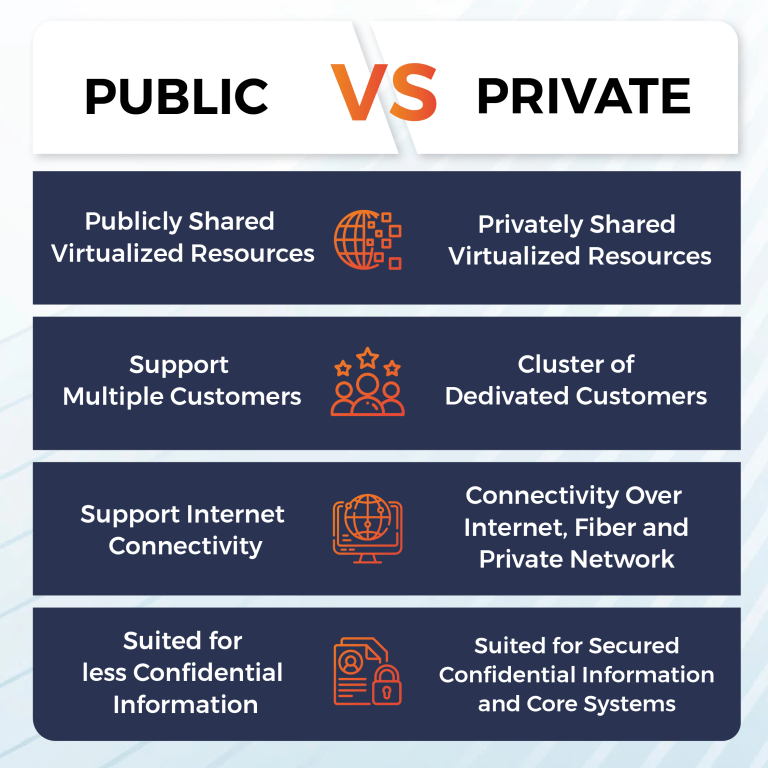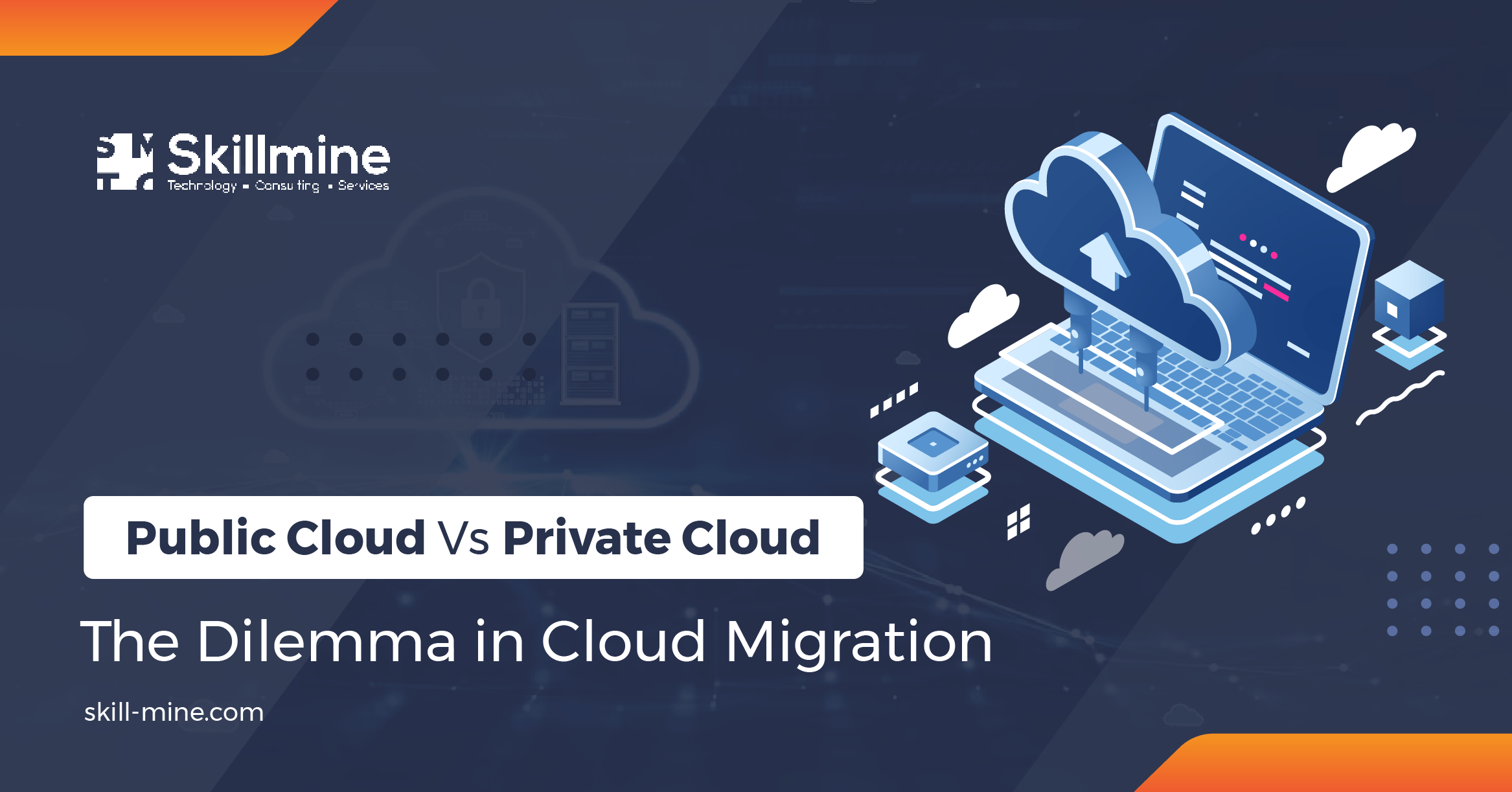Today, business owners are more aware than ever that cloud computing is the way of the future and, therefore, want to incorporate it into their daily operations. It’s crucial to comprehend the distinction between the private and public cloud, as well as understand the fundamentals of cloud computing, before selecting which cloud is best for your company.
What is cloud computing?
Cloud is a collection of servers hosting databases and software accessible over the internet. These servers are located in data centres all over the globe. Through cloud computing, businesses can eliminate the need to perform server maintenance and administration tasks.
Though there are several models of cloud-like public, private, hybrid and multi-cloud, we will deal with private and public clouds in this blog.
The difference between public and private cloud
A server environment housed in a data centre that potentially shares resources with other clouds is called a public cloud environment. A public cloud does not have a private firewall to block access from the outside world. Therefore, even when security precautions are in place to safeguard public cloud data, the actual server area where it resides is not walled off.
The exact reverse is true of a private cloud. It offers a particular customer a particular collection of hardware and software services, all secured by a private firewall and sharing resources. Private networks are most often used to host private clouds.
Integrating both private and public clouds is feasible in a hybrid environment.

Should you choose private over public cloud?
A private cloud is preferable if data and infrastructure require the best protection on various levels. When you go private, you stop trusting outsiders to control the atmosphere. When third parties are eliminated, security immediately rises.
Another justification for creating a private cloud is having your own data centre that you own and manage. You might as well run your own cloud if you are going to invest the time, money, and effort into data centre management. Paying a third party to provide services your business is fully equipped to handle is pointless.
Another reason to go private is the desire for complete customization and control.
The primary benefit of public clouds is that third parties manage them. Though you pay for the required hardware and software, the provider handles everything from maintenance to security updates.
However, public clouds do have their downsides. Since they almost always share resources, issues related to speed and accessibility are prone to arise. Besides, you may end up paying for services you don’t need in a public cloud environment. It’s also not possible to have complete control over infrastructure and security. Understand the current state of your on-premises infrastructure and identify which workloads are suitable for 7 Steps of Cloud migration to the cloud.
Conclusion
Both public and private clouds serve valuable purposes. It’s not possible to label one as better or worse than the other. The one that best suits your organisation’s needs is the best choice for your business. Skillmine’s cloud services can help your business figure out the best cloud strategy.
Looking for expert technology consulting services? Contact us today.





